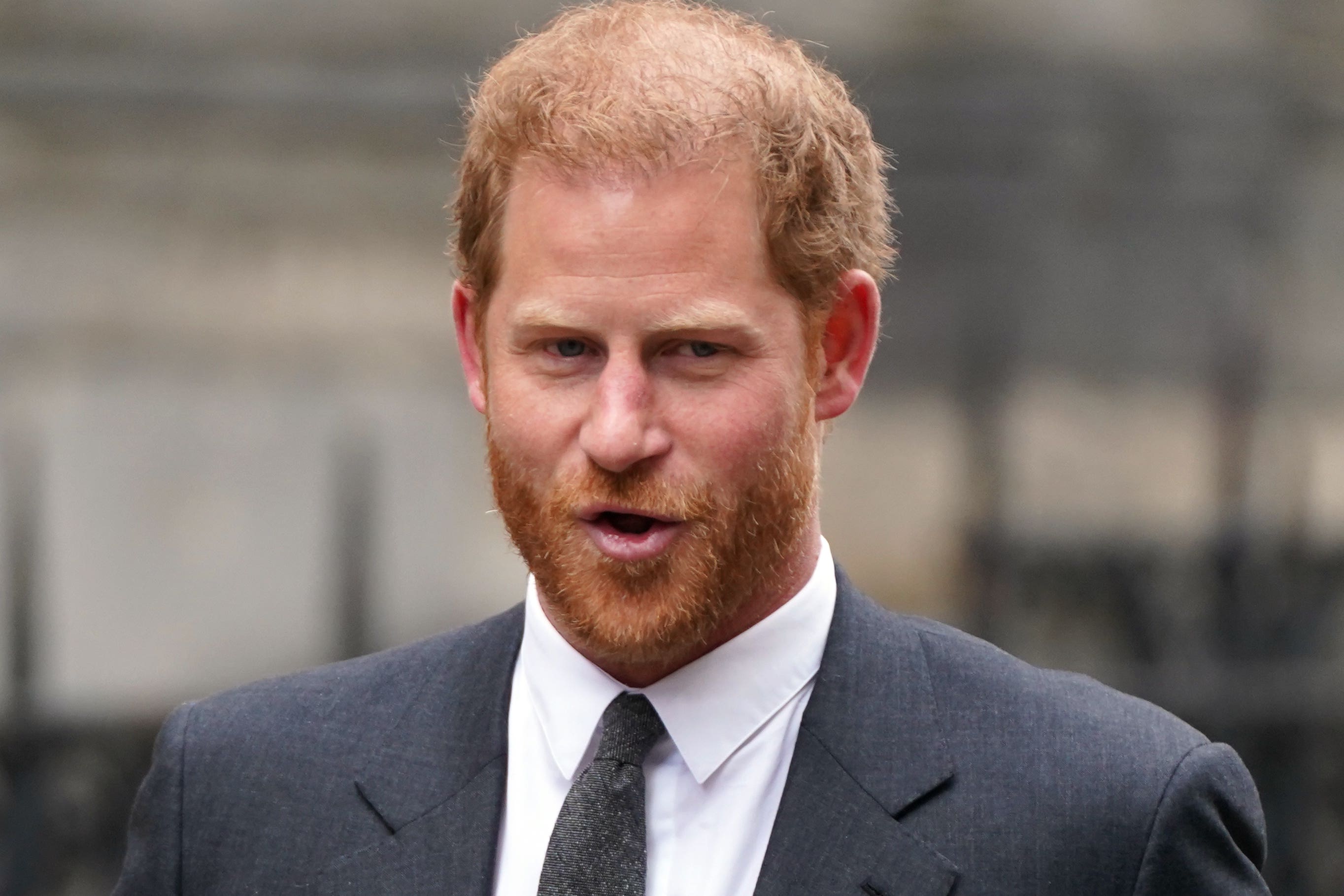Sun publisher loses bid to push back full trial of legal challenges
A number of people, including the Duke of Sussex, have accused the publisher of being involved in unlawful information gathering.

The publisher of The Sun has lost a bid to push back a potential full High Court trial of unlawful information gathering claims brought by the Duke of Sussex and others.
Harry, 39, alleges he was targeted by journalists and private investigators working for News Group Newspapers (NGN).
He is among 42 existing cases against the publisher, with a full trial of some of the claims, which could include the duke, due to take place in January next year.
At a hearing earlier this week, NGN asked a judge to instead hold a narrower-in-scope preliminary trial that month to decide whether the cases against it have been brought too late and outside a legal time limit.
The publisher has previously denied unlawful activity took place at The Sun.
In a ruling on Friday, Mr Justice Fancourt dismissed NGN’s request, meaning some cases will proceed towards a trial in eight months’ time if they are not settled out of court before then.
The judge said there was a “plainly considerable risk” of a preliminary trial “increasing costs overall and delaying” a full trial by up to two years.
“That is unsatisfactory,” he said.
At a hearing on Wednesday, lawyers for NGN said the court should first determine whether those bringing cases could have known they had a “worthwhile” claim six years before they issued theirs.
Anthony Hudson KC, for NGN, said the allegations it faced dated from between eight and 29 years before claims started – with the earliest allegedly happening in 1993.
These cover allegations of phone hacking, blagging information, using private investigators, burglaries and bugging, the court has heard.
A trial on the timing issue would not have determined the full details of the allegations NGN faces, and could have resulted in findings that some claims are “time-barred” and therefore dismissed.
NGN’s lawyers argued this approach was the “most efficient” way of dealing with cases and could “promote” settlements, but the legal team for Harry and others said it would be “highly disruptive and prejudicial” and cause “substantial delay”.
Mr Justice Fancourt said NGN’s request had come “late”, noting that people bringing claims had been expecting a trial to take place since November 2022.
The judge said a narrower initial trial could result in “wasted” legal costs, may trigger appeals delaying a fuller trial and would not make a difference to whether cases settled or not.
He said there were “too few advantages to abandoning the orderly preparation” of the January 2025 trial where the question of the timing of claims will nonetheless feature.
Wednesday’s hearing was told that the Duke of Sussex could be forced to settle his claim against NGN because of the risks of high legal costs.
David Sherborne, representing Harry and others, said the duke was “subject to the same issues” as actress Sienna Miller and actor Hugh Grant who both previously said legal costs contributed to the settlement of their cases.
Mr Grant said he had been told by lawyers he risked being liable for £10 million in costs even if he was successful at a trial.
The court was also told that NGN has reached out-of-court settlements in more than 1,600 legal claims amid the long-running, phone hacking litigation.
A spokesperson for NGN said earlier this week: “In 2011, an unreserved apology was made by NGN to victims of voicemail interception by the News Of The World. Since then, NGN has been paying financial damages to those with proper claims.
“As we reach the tail end of litigation, NGN is drawing a line under disputed matters, some of which date back more than 20 years ago. In some cases, it has made commercial sense for both parties to come to a settlement agreement before trial to bring a resolution to the matter.
“There are a number of disputed claims still going through the civil courts, some of which seek to involve The Sun. The Sun does not accept liability or make any admissions to the allegations.
“A judge recently ruled that parts of Mr Grant’s claim were out of time and we have reached agreement to settle the remainder of the case.
“This has been done without admission of liability. It is in both parties’ financial interests not to progress to a costly trial.”
Subscribe to Independent Premium to bookmark this article
Want to bookmark your favourite articles and stories to read or reference later? Start your Independent Premium subscription today.
